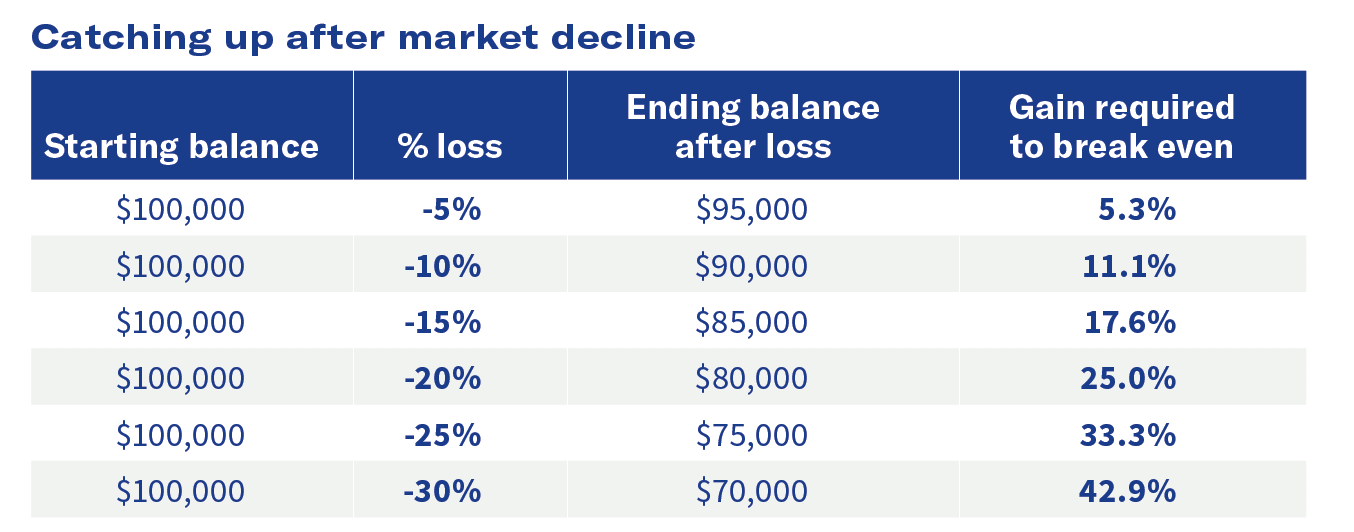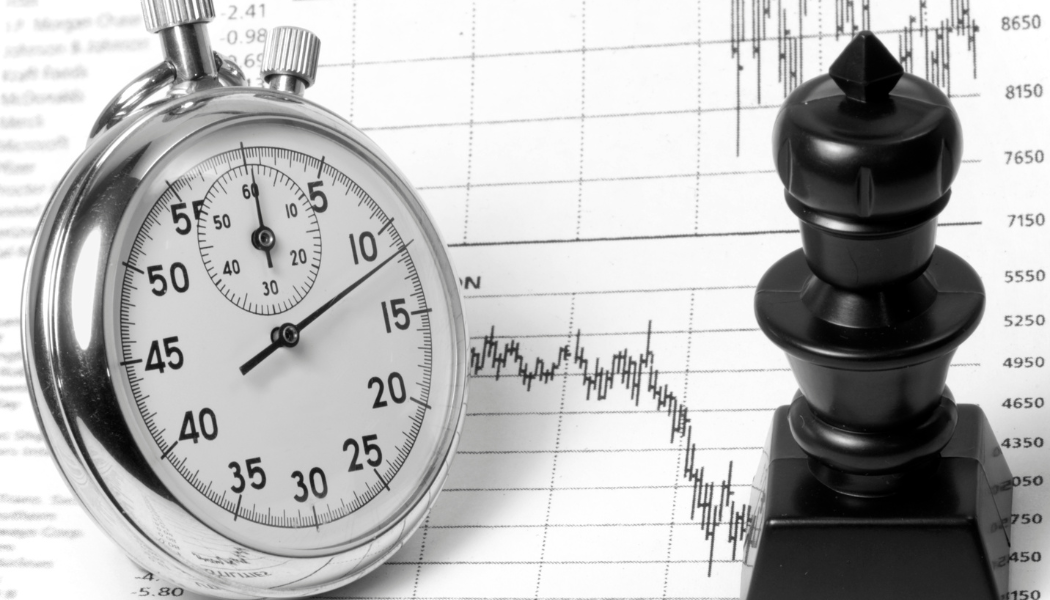Every time something new happens in the world — whether it’s economic, political, or even health-related these days — it seems like the market reacts. Large swings, especially, may cause you to react emotionally, making changes to your portfolio that may not be in your best interest. For example, a big downturn may make you feel like you need to get your money out of the market when a move like that could hurt your portfolio by locking in losses. And while it can be hard not to follow the crowd and make these types of changes to your retirement strategy, consider talking to a financial professional beforehand. You might find out that staying invested and on track with your current strategy is a better option for you. Here’s why:
Market moves may seem small in the long term
If you look at the history of the stock market, returns have been positive overall and over time. That’s because, in the past, the market has bounced back eventually, even after a large decline. While it’s easy to feel like you need to either invest more (as prices are rising) or take your money out (if prices are dropping), try taking a long-term view and talking to your financial professional to make sure your overall portfolio can withstand dips in the market. Remember that a drop in the market doesn’t necessarily mean a loss in your portfolio unless you act on it.
What happens if you miss the best days of the market?
Let’s say you decided not to focus on the long term but instead tried to time the market. You tried to guess at just the right day to get out, then get back in so that you could avoid the worst of the downturns and take advantage of the best upswing days. Here’s what you may find out:
- It is nearly impossible to time the market.
- Seven of the best 10 days happened within 2 weeks of the 10 worst days, from January 2, 1969 – December 31, 2019. That means you would have needed to get out and then back in very quickly.
- In fact, the best day in 2011 was only one day after the worst day.
- And, if you missed the 10 best days of the market during that time frame, your return would have been about half of what it would have been if you would have stayed in the market the whole time.
Source: What can TIME teach us about investing? February 2019.
How much do you need to catch up after a market decline?
If you miss the best days of the market because you weren’t in the market, it becomes harder to make up for losses. You can see why in the table below.

Working with a financial professional to determine a strategy within your time horizon
Everyone’s situation is different. It’s not enough to simply say keep a long-term focus. That’s because your retirement time horizon — the number of years until you need to take income for retirement — may be different from everyone else’s. A financial professional can help you figure out what “long term” means to you and can work with you to design a strategy that can help you feel comfortable staying invested, regardless of how long you need to invest your money.
Equitable is the brand name of the retirement and protection subsidiaries of Equitable Holdings, Inc., including Equitable Financial Life Insurance Company (NY, NY), Equitable Financial Life Insurance Company of America, an AZ stock company with main administrative headquarters in Jersey City, NJ, and Equitable Distributors, LLC. Equitable Advisors is the brand name of Equitable Advisors, LLC (member FINRA, SIPC) (Equitable Financial Advisors in MI and TN).
Equitable Advisors and its affiliates do not provide market or investment research and make no representation as to the accuracy or completeness of any statements, statistics, data, opinions, forecasts, or predictions provided herein. This material is not intended and should not be relied upon as investment or financial advice and does not constitute an offer or solicitation of any kind.
GE-3182736 (08/2020) (Exp. 08/2022)

